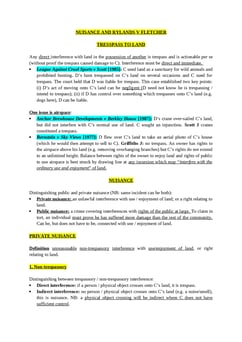Judgement for the case Huth v Huth
Table Of Contents
KEY POINTS
The issue of libel frequently emerges in the realm of published communications. A substantial facet of libel cases revolves around the mode and method of publication.
One particularly noteworthy scenario involves situations where the purportedly defamatory communication is enclosed within an unclosed envelope. This specific circumstance introduces a set of unique challenges and legal considerations within the framework of defamation law.
FACTS
In this case, the document in question had been placed in an envelope that was not sealed or closed with any adhesive. It had been sent through the post with a halfpenny stamp and had arrived at the residence where the mother had lived.
Upon receiving the letter, the butler at the residence had opened the envelope and had read its contents, which had contained the alleged defamatory statements. The butler had acknowledged that he had opened it out of curiosity.
There had been no special circumstances present to suggest that the defendant had intended for the letter to be opened by a third party, such as the butler. Instead, the butler's actions had been considered a wrongful act. The plaintiffs had been unable to provide evidence that the defendant should have been held responsible for the publication to the butler.
The legal issue had revolved around whether the act of opening the unsealed envelope by the butler had constituted a publication by the defendant or whether the defendant could have been held responsible for it.
The judges in the case had emphasized that there had been no presumption of fact or high degree of probability that the document would be opened during its transmission from the defendant to the mother.
JUDGEMENT
The court held that there was a lack of evidence to establish that the defendant had engaged in the publication of the communication. Consequently, the action brought by the plaintiffs could not be sustained.
COMMENTARY
Defamation cases often revolve around the publication of communications, and the mode of publication plays a pivotal and intricate role in these legal proceedings. One particularly intriguing facet of such cases arises when potentially defamatory content is discreetly enclosed within an unclosed envelope. This scenario introduces a set of nuanced considerations within the overarching framework of defamation law.
In the case, the defendant dispatched a written communication via the postal service, which the plaintiffs alleged contained defamatory material. This communication was contained within an unclosed envelope, which is unique situation compared to conventional defamation scenarios. Subsequently, contents were retrieved from the envelope and were scrutinized by a butler employed at the designated address. The butler's actions stemmed from curiosity and interest but clearly breached his duty as a servant. The plaintiffs initiated a libel action against the defendant in response to this situation.
-
The court's ultimate decision hinged on a pivotal question: Was there sufficient evidence to firmly establish that the defendant had indeed participated in the publication of the controversial communication?
After thoroughly examining the available evidence, the court reached the verdict that the case fell short of substantiating the defendant's direct involvement in the publication of the material.
Consequently, the libel action brought by the plaintiffs could not be legally sustained.
This case serves as an example of the critical significance of proving the publication of defamatory content in libel cases, with the specific mode of publication emerging as a central and highly influential factor in determining legal outcomes.
ORIGINAL ANALYSIS
Defendant sent a letter to X and Y, defaming X and Y. The butler opened and read the letter.
X and Y claimed that this was publication to a 3rd party.
CA held that since it is no part of a butler’s duties to open his mistresses’ letters, his doing so could not make Plaintiff liable for defamation.
Lord Reading CJ
Letters sent, albeit unsealed ones, are not opened by intermediaries in the “ordinary course of business”.
This is not the same as a defamatory postcard, which does publish its contents to all who handle it.
Bray J
Since there was not a “high degree of probability” that the letter would be opened and read before reaching X and Y, it cannot be said to have published its claims.
For Further Study on Huth v Huth
Need instant answers? Our AI exam tutor is here to help.
Ask questions 🙋 Get answers 📔 It's simple 👁️👄👁️
Our AI is educated by the highest scoring students across all subjects and schools. Join hundreds of your peers today.
Get StartedSimilar Cases
Related Product Samples
These product samples contain the same concepts we cover in this case.

 Since 2010, Oxbridge Notes has been a trusted education marketplace, supplying high-quality materials from top achievers at universities like Oxford, Cambridge, LSE, Harvard, and Yale.
Since 2010, Oxbridge Notes has been a trusted education marketplace, supplying high-quality materials from top achievers at universities like Oxford, Cambridge, LSE, Harvard, and Yale.